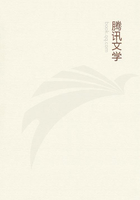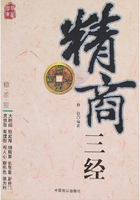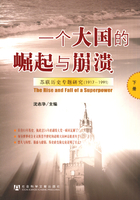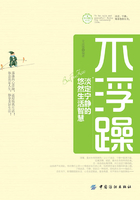The first step of the government, after the reduction of a country, was to introduce there the worship of the Sun. Temples were erected, and placed under the care of a numerous priesthood, who expounded to the conquered people the mysteries of their new faith, and dazzled them by the display of its rich and stately ceremonial.62 Yet the religion of the conquered was not treated with dishonor. The Sun was to be worshipped above all; but the images of their gods were removed to Cuzco and established in one of the temples, to hold their rank among the inferior deities of the Peruvian Pantheon. Here they remained as hostages, in some sort, for the conquered nation, which would be the less inclined to forsake its allegiance, when by doing so it must leave its own gods in the hands of its enemies.63The Incas provided for the settlement of their new conquests, by ordering a census to be taken of the population, and a careful survey to be made of the country, ascertaining its products, and the character and capacity of its soil.64 A division of the territory was then made on the same principle with that adopted throughout their own kingdom; and their respective portions were assigned to the Sun, the sovereign, and the people. The amount of the last was regulated by the amount of the population, but the share of each individual was uniformly the same. It may seem strange, that any people should patiently have acquiesced in an arrangement which involved such a total surrender of property. But it was a conquered nation that did so, held in awe, on the least suspicion of meditating resistance, by armed garrisons, who were established at various commanding points throughout the country.65 It is probable, too, that the Incas made no greater changes than was essential to the new arrangement, and that they assigned estates, as far as possible, to their former proprietors. The curacas, in particular, were confirmed in their ancient authority; or, when it was found expedient to depose the existing curaca, his rightful heir was allowed to succeed him.66 Every respect was shown to the ancient usages and laws of the land, as far as was compatible with the fundamental institutions of the Incas. It must also be remembered, that the conquered tribes were, many of them, too little advanced in civilization to possess that attachment to the soil which belongs to a cultivated nation.67 But, to whatever it be referred, it seems probable that the extraordinary institutions of the Incas were established with little opposition in the conquered territories.68Yet the Peruvian sovereigns did not trust altogether to this show of obedience in their new vassals; and, to secure it more effectually, they adopted some expedients too remarkable to be passed by in silence.-Immediately after a recent conquest, the curacas and their families were removed for a time to Cuzco. Here they learned the language of the capital, became familiar with the manners and usages of the court, as well as with the general policy of government, and experienced such marks of favor from the sovereign as would be most grateful to their feelings, and might attach them most warmly to his person. Under the influence of these sentiments, they were again sent to rule over their vassals, but still leaving their eldest sons in the capital, to remain there as a guaranty for their own fidelity, as well as to grace the court of the Inca.69Another expedient was of a bolder and more original character. This was nothing less than to revolutionize the language of the country. South America, like North, was broken up into a great variety of dialects, or rather languages, having little affinity with one another. This circumstance occasioned great embarrassment to the government in the administration of the different provinces, with whose idioms they were unacquainted. It was determined, therefore, to substitute one universal language, the Quichua,--the language of the court, the capital, and the surrounding country,--the richest and most comprehensive of the South American dialects. Teachers were provided in the towns and villages throughout the land, who were to give instruction to all, even the humblest classes; and it was intimated at the same time, that no one should be raised to any office of dignity or profit, who was unacquainted with this tongue. The curacas and other chiefs, who attended at the capital became familiar with this dialect in their intercourse with the Court and, on their return home, set the example of conversing in it among themselves. This example was imitated by their followers, and the Quichua gradually became the language of elegance and fashion, in the same manner as the Norman French was affected by all those who aspired to any consideration in England, after the Conquest. By this means, while each province retained its peculiar tongue, a beautiful medium of communication was introduced, which enabled the inhabitants of one part of the country to hold intercourse with every other, and the Inca and his deputies to communicate with all. This was the state of things on the arrival of the Spaniards. It must be admitted, that history furnishes few examples of more absolute authority than such a revolution in the language of an empire, at the bidding of a master.70Yet little less remarkable was another device of the Incas for securing the loyalty of their subjects. When any portion of the recent conquests showed a pertinacious spirit of disaffection, it was not uncommon to cause a part of the population, amounting, it might be, to ten thousand inhabitants or more, to remove to a distant quarter of the kingdom, occupied by ancient vassals of undoubted fidelity to the crown. A like number of these last was transplanted to the territory left vacant by the emigrants. By this exchange, the population was composed of two distinct races, who regarded each other with an eye of jealousy, that served as an effectual check on any mutinous proceeding. In time, the influence of the well affected prevailed, supported, as they were, by royal authority, and by the silent working of the national institutions, to which the strange races became gradually accustomed. A spirit of loyalty sprang up by degrees in their bosoms, and, before a generation had passed away, the different tribes mingled in harmony together as members of the same community.71 Yet the different races continued to be distinguished by difference of dress; since, by the law of the land, every citizen was required to wear the costume of his native province.72Neither could the colonist, who had been thus unceremoniously transplanted, return to his native district for, by another law, it was forbidden to any one to change his residence without license.73 He was settled for life. The Peruvian government ascribed to every man his local habitation, his sphere of action, nay, the very nature and quality of that action. He ceased to be a free agent; it might be almost said, that it relieved him of personal responsibility.
同类推荐
热门推荐
春分日宇宙骑士杀人事件
从出生之后经历了许多奇妙的事情,去了很多特别的地方,遇见了很多怪奇人士,而现在的自己也正从事着有些不一般的工作。也不知在某天,我就突发奇想:把人生中遇见的有趣的东西,写成故事分享给大家应该不错吧?之后说做就做了——所以在每个看似非常离奇的故事的背后,实际上,或许是真的有某些事实性的东西存在着的哦。希望大家喜欢。一个大国的崛起与崩溃:苏联历史专题研究(1917~1991)(下册)
苏联74年的历史是丰富多彩的,特别是最近十几年来,俄国解密的大量档案文献,涉及方方面面。本书所写不仅把每一事情的来龙去脉讲得清清楚楚,向人们呈现出一个与以往完全不同的完整的和客观的历史现象,而且引入了新视角,让读者看到了问题的各个侧面,从而对这段历史可以有一个更加全面和深入的解读。快穿之反派他又吃醋了
书棠绑定了真善美系统,入三千世界赚取功德点,结果……阴郁少年挑眉笑道:姐姐想去哪里,为什么不叫我呐?残暴帝王大手一挥:爱妃你快看,这是朕为你打下的江山!清冷师尊眉眼如画:为师这有一本双修功法,晚间我教你。纯情大神又软又甜:既然你不谈恋爱,那我们就谈谈其他的叭qvq……“小九,不要离开我。”权倾朝野尊贵无比的残暴帝王搂着少女轻声呢喃。“小九,我很善解人衣哦。”身形颀长的少年弯着眼眸说。“唔,我一直都相信日久生情啊!”容貌迤逦的俊美丧尸软萌的解释,“难道九儿觉得还不够吗?”……“书小九,我是你的!”少年天道软萌的宣誓完还不忘了奶凶奶凶的警告,“不许不负责!”……不浮躁:淡定宁静的悠然生活智慧
现实生活中往往会碰到很多的不公正,遭遇很多的挫折,我们很容易变得浮躁。但是,我们不应该让人生从此蒙上浮躁的阴影,我们的翅膀不应该因此而折断,这个时候我们所应当做的就是让我们的内心世界变得强大,解决那些让我们变得浮躁的困惑,从而找回淡泊与宁静。女配重生记:少师大人靠墙站
穿越重生有风险,没看她空间异能样样有,可是却被别人得心应手;逆袭翻转有惊险,她就只差上天入地了;抱大腿傍大款……不!傍男主有凶险,各种阴谋阳谋,那都不是个事儿!都说跟着主角有肉吃,为嘛她家的女主变成了男主?她不就是想当个有用不被炮灰的女配吗?怎么忽然间,就要跟男主成亲了?可是最起码,她还不至于傻到被人卖了还得帮着数钱吧?男主厉眼一扫,怎么你还以为你有多聪明?不带这样瞧不起人的,你就是少师大人,也给我靠墙站好,我不伺候了…………爱谁谁爱谁谁!本文正式开始激烈的阴谋论。

